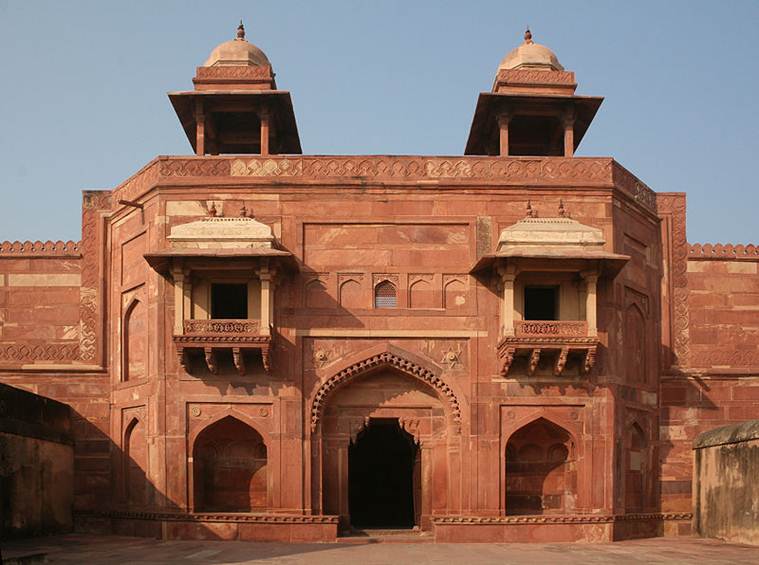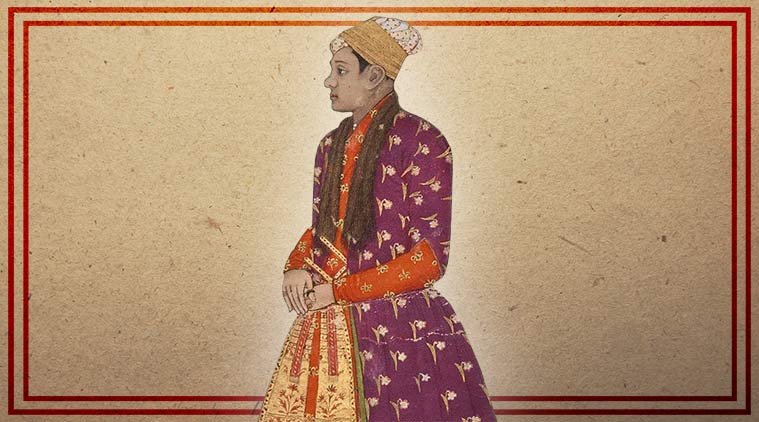The Dutch merchant Francisco Pelsaert, during his visit to the Mughal court in the seventeenth century, made a surprising discovery, that of the prestige and power enjoyed by the third gender, or eunuchs in the imperial household. “They can get whatever they desire- fine horses to ride, servants to attend them outside, and female slaves inside the house, clothes as fine and smart as those of their master himself,” he is noted to have written in his travelogue. The elevated stature of eunuchs during the Mughal era has been documented for years by foreign travelers and historians. “Even the stigmatised community of hijras in India today seem to carry something of the special powers, the baraka, of the eunuchs of earlier times, and they invoke Mughal eunuchs as their ancestors,” writes historian Ruby Lal in her article ‘Harem and eunuchs: Liminality and networks of Mughal authority’.
In April 2008, the transgenders in Bihar invoked that very era of respect and supremacy when they demanded the same kind of involvement in social welfare policies as were existent during the Mughal era. On Wednesday, the Bihar government headed by Nitish Kumar decided to endow upon the third gender, the same kind of trust and regard as was historically given to them. They plan to employ transgenders for the security of females in remand or short stay homes. The government is of the belief that such a move will not just improve the security situation of women, but will also generate employment of eunuchs, a majority of whom currently carve out a living through begging.

 At present, the community of transgenders in India lead a marginalised existence, often spotted begging for arms in the streets or at people’s homes on the occasion of childbirth or marriage. (Express Archive photo)
At present, the community of transgenders in India lead a marginalised existence, often spotted begging for arms in the streets or at people’s homes on the occasion of childbirth or marriage. (Express Archive photo)
The faith placed by the Bihar government in transgenders is largely reflective of a time when they were not just trusted as guards of imperial harems and chambers, but were also privy to intimate details of the court and the household. “Indeed, eunuchs appear as protectors of kings, influential messengers, important office-holders and persons of wealth,” writes Lal. It is interesting to note that the importance attached to eunuchs in the Mughal court was to a large extent derived from the stature they held in Islamic societies in general.
Eunuchs in Islamic history
Religious studies scholar Shaun Marmon, in her book ‘Eunuchs and sacred boundaries in Islamic society’, notes the surprise with which British traveler Eldon Rutter reacted to the presence of eunuch guards at the tomb of the Prophet when he visited Medina in 1925. Rutter noted in great detail how the eunuch guards entered the tomb enclosure in solemn procession every day at dusk to light the great oil lamps. “It was the ceremonial statement of the exclusive relationship of the eunuchs with the ‘Prophetic presence’,” writes Marmon. She goes on to write that the relationship that the eunuchs shared with the Prophet was almost sacred.
However, there were several reasons for the sanctity attached to the presence of the third gender as guards of the Prophet’s tomb. “The reason why eunuchs are specially employed on the Mataf, and for police purposes is, that in the event of a disturbance occurring in which women are concerned, or in the event of a woman appearing on the Mataf in unseemly attire or in a state of uncleanliness, they may handle such offenders and expel them without impropriety, as they are not really men in the full sense of the word,” wrote Rutter in his travelogue, ‘The holy cities of Arabia.’
There were other travelers, however, who explained the presence of the eunuchs in more functional ways. The eighteenth-century explorer Carsten Niebuhr explained the employment of eunuchs in the Prophet’s tomb by stating, “it is undoubtedly because of these treasures that the tomb of Muhammad is guarded by forty eunuchs who are not tempted to steal anything from it in order to profit their descendants.”
Also Read | Tiger of Mysore or ‘Tiphoo the tyrant’?
The association of eunuchs with the Prophet’s tomb invested them with a certain sense of power that was sacred. “ As guardians of the Prophet’s tomb, eunuchs became a symbol of authority. They were the khudd m or the servants of the Prophet, a status that endowed them with power,” writes Lal. The concept of the sacred society of eunuchs soon traveled beyond the tomb of the Prophet and such societies soon emerged at the tomb of sultans in Cairo, the Kaaba in Mecca and the Dome of the Rock in Jerusalem as well. The Mughal empire in the East would not go untouched by its influence too.
Eunuchs in Mughal history
Eunuchs had a significant role to play in harem management during the Delhi Sultanate period itself. The Sultanate was replaced by the Mughal empire in the sixteenth century and they continued to have an important presence in the semi-nomadic life of the Central Asian rulers. However, the reign of Babur and Humayun has left very little references to the role played by eunuchs. This is not to say there were none at all. “Babur does not mention a single eunuch in the Baburnama, though we know from other sources about his eunuch named Ambar,” writes historian Shadab Bano in her article ‘Eunuchs in Mughal households and court’. Lal notes in her article how Babur’s daughter Gulbadan Begum wrote about the “valorous acts of Ambar, the superintendent and royal agent (mulk-mukhtar), in guarding women during the time the royal retinue took refuge in the fort of Bala Hissar.”
But it is during the reign of Akbar that the presence of eunuchs was most visible and references to them are also most extensive in the sources belonging to this period. It is interesting to note, as Lal writes in her book, that the condition of women in the imperial household in itself underwent a major change during Akbar’s rule. It was on his ruling that “a compartmentalised harem was designed to segregate women in a space of their own – for good order and propriety,” writes Lal. In such an arrangement, the women’s quarters was guarded by layers of security – the eunuchs were assigned to guard the outside enclosure and at some distance away, a ring of Rajput watchmen was placed.
Most Read 1Karan Johar says Shah Rukh Khan would’ve agreed to Rocky Aur Rani cameo, but he didn’t have ‘the guts’ to ask him’: ‘He did Brahmastra for free’ 2Ratna Pathak Shah on Naseeruddin Shah’s first marriage: ‘He had many relationships… but as long as I am the last, I am okay’ 3When Simi Garewal said it was ‘easy’ to ask Rekha if she was ever in love with Amitabh Bachchan: ‘I asked Jayalalithaa if she ever loved MGR so…’ 4‘Ranveer Singh is a chameleon, Deepika Padukone says a new person walks into her house every six months’: Karan Johar 5Prithviraj Sukumaran opens up about Shah Rukh’s Dunki and Prabhas’ Salaar face-off: ‘I can promise you…’ The Mughal harem in Fatehpur Sikhri (Wikimedia Commons)
The Mughal harem in Fatehpur Sikhri (Wikimedia Commons)
In an atmosphere that attached a notion of ‘sanctity’ to the segregation and protection of women, the stature of eunuchs was bound to undergo change. “Thus many eunuchs in the service of the sacred harem, close to the sacred person of the emperor and the Mughal women, were both ‘servants’ and ‘officers’ of the empire,” writes Lal. References to them in important Mughal manuscripts are extensive. For instance, the Akbarnama illustrates the role of the eunuch Niamat who stops Akbar’s foster-brother Adham Khan from entering the imperial harem. “Most striking had been the presence of Itimad Khan, eunuch-officer, so early at Akbar’s court with a very important charge of administering the finances of the state,” writes Bano. About Itimad Khan, Bano goes on to suggest that “he obtained the highest consideration in the harem, and even in state matters, thereby becoming ‘sovereign confidant”. Clearly, eunuchs in Akbar’s empire had a higher stature to hold. They also possessed a significant amount of wealth.
 Khawas Khan, the eunuch of Bahadur Shah (Saeed Motamed collection)
Khawas Khan, the eunuch of Bahadur Shah (Saeed Motamed collection)
The elevated status of eunuchs in Akbar’s regime also had a dangerous aspect to it. “Their sanctified position and inventiveness meant they had room for maneuver and opportunities for taking the initiative,” writes Lal. It is in this context perhaps, that Akbar’s son Jahangir put a ban on the practise of castrating young boys for the sake of trading them as eunuchs to the imperial regime. Nonetheless, eunuchs continued to hold primary positions in the later years of the Mughal regime as well. “No one relied on them as heavily as the aging Aurangzeb,” writes Lal adding that his head eunuch Khwaja Talib was particularly prominent.
Also ReadWhy Islamic State in Afghanistan harks on the concept of Khorasan and wha…Here is everything you need to know about Indian JewsPeriyar and the Dravidian movement in Tamil NaduFrom Meluha to Hindustan, the many names of India and BharatAlso Read | How Sikh hawkers were among the first to conquer Australian outback
At present, the community of transgenders in India lead a marginalised existence, often spotted begging for arms in the streets or at people’s homes on the occasion of childbirth or marriage. Rarely do we acknowledge a life of glory and power that they had once lived in the subcontinent centuries ago.
© IE Online Media Services Pvt Ltd



